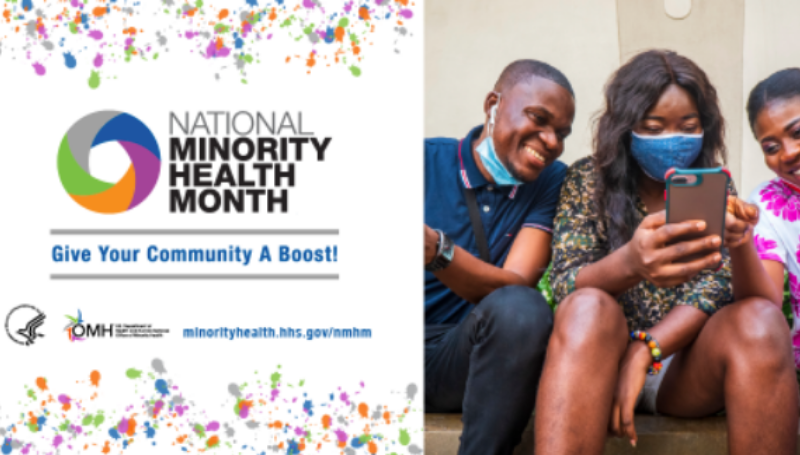
April is National Minority Health Month, a time to raise awareness about health disparities that affect those from racial and ethnic minority groups in the U.S. and encourage action through health education, early detection, and control of disease complications. Read on to learn more about National Minority Health Month and its mission this year.
What is National Minority Health Month?
In 2002 U.S. Congress passed a joint resolution to establish National Minority Health Month that said:
"A National Minority Health and Health Disparities Month should be established to promote educational efforts on the health problems currently facing minorities and other health disparity populations.”
This month is an opportunity for Americans to promote healthfulness and access to healthcare services in underserved and minority communities.
What’s the Mission of National Minority Health Month?
The theme for National Minority Health Month in 2022 is Give Your Community a Boost. The goal of National Minority Health Month is always to raise awareness about health disparities that affect those in racial or ethnic minorities. This year, there's a specific focus on COVID-19 because some racial and ethnic minority groups are still disproportionately affected by the disease.
As we have seen throughout the pandemic, longstanding systemic health and social inequities have put many people from racial and ethnic minority groups at increased risk of contracting COVID-19 and/or experiencing severe illness. Not only has the impact of low income, discrimination, and lack of healthcare access contributed to this group's heightened risk, but more people from some minority groups are employed in essential work settings which continue to present increased opportunities for exposure to the disease. People who work in healthcare facilities, farms, factories, grocery stores, public transportation, and other service-related jobs are particularly vulnerable.
Visit the COVID Data Tracker’s Health Equity page for data related to specific populations and place-based groups.
What Can I Do to Help?
In 2022, the focus of National Minority Health Month is to help these communities by promoting awareness of COVID-19 vaccines and boosters. This will be accomplished by employing a two-pronged approach:
- Offering information that reinforces how vaccines impact health outcomes
- Building trust in family physicians
You can also do your part to boost the signal on social media by sharing information about National Minority Health Month and using #BoostYourCommunity.
Walking hand-in-hand with this month’s focus on minority health is the movement to understand implicit biases and how they impact the communities you serve. Implicit biases are unconscious thoughts or beliefs about people that you may not even be aware of, and identifying your biases will help you provide better treatment and care for your patients.
We can all work together to help address inequities in our healthcare system and improve healthcare inequities in our communities. Check out our blog series, Start From Within, to learn how you can be part of the solution.


